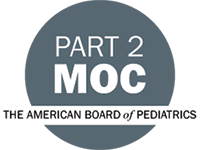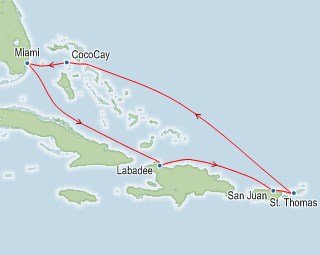
COURSE CREDITS & HOURS
14 AMA PRA Category 1 Credits™14 ACPE Credits
14.0 Contact Hours
14 MOC (Part II) points in the American Board of Pediatrics' (ABP) Maintenance of Certification (MOC) program
COURSE FEES
TARGET AUDIENCE
PROGRAM PURPOSE
We will be providing a simple yet practical knowledge base framework in pediatric emergency medicine/trauma through which the participant will be able to improve their practice in the following areas:
- Providing basic medical knowledge in the fields of adult and pediatric emergency medicine and trauma
- PChallenging current patient care practices and providing new practice paradigms to be able to assimilate into the participant's practice
- PChallenging current systems-based practices and providing new practice paradigms to be able to assimilate into the participant's practice
- PProviding key interpersonal and communication skills which will help the participant navigate the complex world of team dynamics/crisis resource management and leadership
- Rapid Trauma Assessment and Stabilization
- Upon completion of this activity participants should be able to diagnose and manage significant traumatic injuries and apply initial stabilization techniques
- Hemorrhagic Shock Recognition and Treatment
- Upon completion of this activity participants should be able to distinguish patients in true hemorrhagic shock and apply current treatment strategies and ascertain if blood product utilization is appropriate
- Sepsis and Septic Shock Recognition and Treatment
- Upon completion of this activity participants should be able to diagnose and manage patients in septic shock and apply recommended treatment strategies
- ST Elevation Myocardial Infarction (STEMI) Recognition and Treatment
- Upon completion of this activity participants should be able to diagnose and asses based on pertinent patient history and ECG's of typical and atypical ST elevation myocardial infarctions and apply current treatment recommendations
- Cardiogenic Shock Recognition and Treatment
- Upon completion of this activity participants should be able to diagnose and asses patients in cardiogenic shock and apply evidence based current treatment recommendations to stabilize their patients
- Cerebral Vascular Accident/Stroke Recognition and Treatment
- Upon completion of this activity participants should be able to diagnose and treat patient's with symptoms concerning for acute stroke, large vessel occlusion and intracerebral hemorrhage and apply current treatment recommendations
- Rapid Sequence Intubation (RSI) Update and Techniques
- Upon completion of this activity participants should be able to apply updated techniques and knowledge of available medications on situation based airway emergencies and distinguish the most appropriate medications to perform RSI safely
- Pediatric Resuscitation Made Really Simple...Really!
- Identify the scientific basis for PALS treatment recommendations based on the current science guidelines
- Anaphylaxis - Not Just an "Allergic Reaction"
- Define anaphylaxis clinically
- Understand basis for treatment principles and prioritization of medication
- Feng Shui of Resuscitation
- Understand the role of cognitive loading and how it impacts rational thinking
- Descibe techniques to improve cognitive stamina
- Catastrophic Chest Pain - Myths
- List can't miss diagnoses presenting with chest pain
- Undestand limitations of investigative strategies in the diagnosis of these pathologies
- Abdo Pain in Kids - As Simple As it Gets
- Understand limitations of blood work and imaging modalities commonly used in pediatric abdominal pain
- List age specific abdominal pathologies and their characteristic presentations
- The Irritable Neonate - Things that Irritate Me
- Describe appropriate irritability in a neonate
- List the most common ominous and benign causes of irritability in a neonate
- The Work Up of the Febrile Kid - Easier then You Think
- Define fever and understand the age-specific investigational strategies
- List the most common and most dangerous causes of fever in a pediatric patient













































